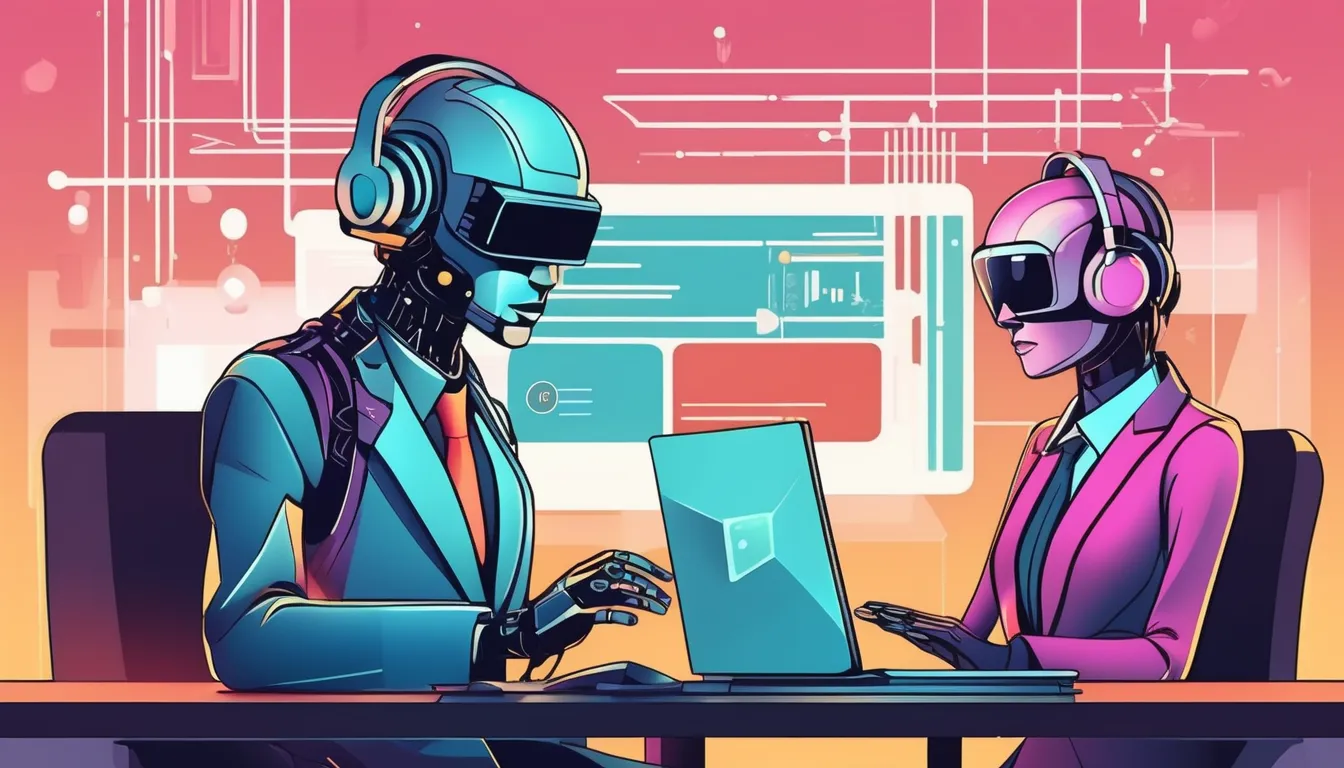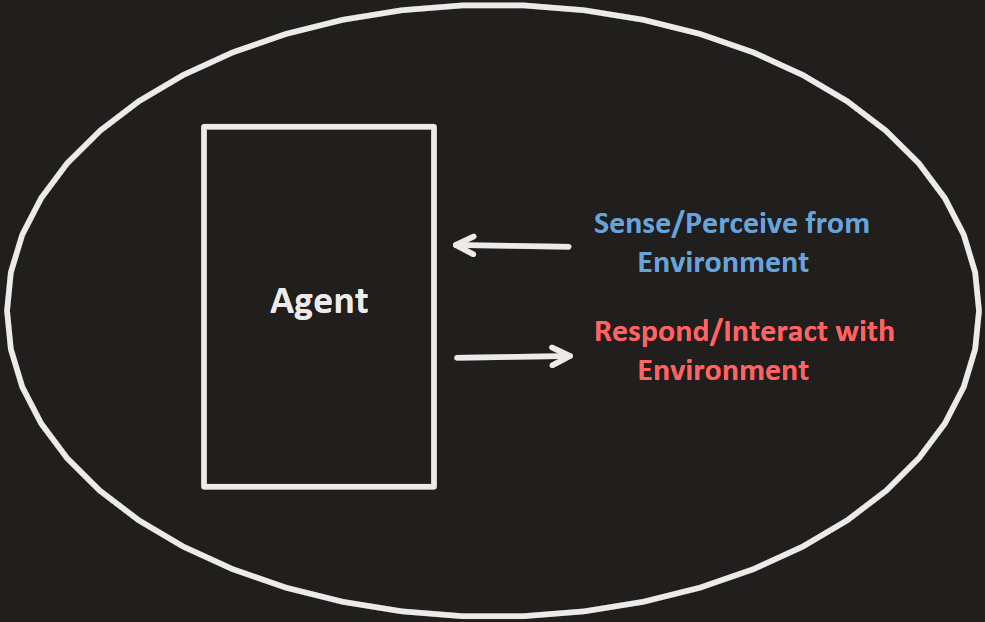AI Agents Explained: Innovations and Applications Unveiled
 Utkarsh Jha
Utkarsh Jha
Introduction to AI Agents
AI agents, often referred to as Artificial Intelligence agents, are software entities created with the ability to observe their surroundings and act in ways that increase the likelihood that they will be successful in accomplishing particular objectives. Artificial Intelligence techniques like Natural Language Processing and Machine Learning are used by these agents to interact with their environment autonomously, make decisions, and modify their behavior in response to new information.

Components of AI Agents
Perception
This part allows the AI agent to observe and learn about its surroundings. Depending on the need, perception may entail a variety of sensors or input techniques. For instance, cameras, radar, and lidar sensors may be used in a self-driving car's vision to identify objects, people, and traffic signals.
Reasoning and Decision-Making
After acquiring an understanding of the environment, the AI agent has to determine what to do based on the facts at hand. Processes like planning, decision theory, and problem solving are all part of reasoning. AI agents evaluate possible courses of action, analyze data, and decide on the optimal path of action to accomplish their objectives using models and algorithms.
Knowledge Representation
In order to represent and protect knowledge about the outside world, AI agents frequently need a structured method. This can comprise domain-specific information, regulations, convictions, and heuristics. Agents are able to comprehend intricate links in the environment, draw conclusions, and make predictions through knowledge representation.
Learning and Training
Through experience, learning enables AI agents to perform progressively over time. Supervised learning, unsupervised learning, reinforcement learning, and deep learning are a few instances of machine learning approaches that enable agents to learn through new data, adapt their behavior, and enhance their decision-making.
Interaction
A significant percentage of AI agents communicate with people or other agents in the environment they inhabit. Agents are able to understand real language, respond appropriately, and participate in meaningful conversations owing to communication components. For applications like chatbots and virtual assistants, this is crucial.
Actuation
Actuation is the AI agent's ability to carry out decisions-based actions in its surroundings. This could entail managing virtual or actual machines, such as software programs or robots or automobiles. The feedback process of perception, cognition, and action that determines an AI agent's behavior is completed by actuator.
Applications and Case Studies of AI Agents
Autonomous cars
(Example: Waymo and Tesla Autopilot)
Application: AI agents in self-driving vehicles utilize sensors (such as cameras and radar) to sense their surroundings and make judgments in real time to maneuver safely and effectively.
Case Study: To enable reliable and secure autonomous driving in a variety of scenarios, Waymo's self-driving cars use AI agents for recognizing items, path planning, and decision-making.
Healthcare Diagnostics
(Example: IBM Watson Health)
Application: To help medical practitioners with diagnosis and treatment planning, AI agents examine medical data including test results, research papers, and patient records.
Case Study: IBM Watson Health uses AI agents to improve clinical decision-making, analyze medical imaging, and recommend treatments based on patient data. These actions improve healthcare outcomes.
Customer Support and Chatbots
(Example: Zendesk and ChatGPT)
Application: AI agents in chatbots can understand client inquiries, offer tailored answers, and manage repetitive activities to increase the effectiveness of customer care.
Case Study: By using intelligent routing and automated responses, Zendesk's AI-powered chatbots connect with customer care platforms to improve customer satisfaction, expedite interactions, and answer questions.
These applications illustrate the adaptability and influence of AI agents in various industries, exhibiting how automation and intelligent systems improve productivity, decision-making, and user experience.
Future Outlook of AI Agents
With anticipated breakthroughs in natural language processing, autonomous systems, and tailored interactions, artificial intelligence (AI) agents and intelligent systems are set to transform whole sectors as well as everyday life in the future. These agents will become more and more integrated into autonomous cars, customer service, healthcare diagnostics, and other areas, improving decision-making and efficiency across industries.
Significant obstacles still need to be overcome, though. These include societal effects like job displacement and worker adaptation, technological difficulties in creating sophisticated AI skills like reasoning and emotional intelligence, and ethical issues like bias mitigation and privacy concerns. Opportunities include cutting-edge applications in a variety of industries, tailored user experiences, advances in science, and international cooperation made possible by AI-driven communication and insights.
Realizing the full potential of AI agents while guaranteeing their development and deployment in an ethical, safe, and inclusive manner will require striking a balance between these opportunities and proactive solutions to problems.
Closing Thoughts: Embracing the Future with AI Agents
Thank you for joining me on this exploration of AI agents and their transformative potential. I hope this journey has shed light on how these intelligent systems are reshaping industries and our daily lives. Your interest and engagement mean a lot to me. Remember, the future holds endless possibilities as we continue to innovate and integrate AI agents into our world. Stay curious, stay informed, and let's continue this conversation. Thank you once again, and I look forward to sharing more insights with you soon.
Warm regards,
Utkarsh Jha, Code Target
Subscribe to my newsletter
Read articles from Utkarsh Jha directly inside your inbox. Subscribe to the newsletter, and don't miss out.
Written by

Utkarsh Jha
Utkarsh Jha
Hey there! I'm Utkarsh, a passionate BTech Computer Science student specializing in AI and Data Science. As a versatile writer, my blog is your go-to space for in-depth insights into AI, LLMs, and cutting-edge technologies, as well as trends in finance, global markets, and geopolitics. Join me as I explore the latest innovations, share practical tips, and analyze the forces shaping our world. My goal is to demystify complex concepts and empower you to stay ahead in the fast-evolving landscape of technology and beyond. Let’s embark on this knowledge journey together and shape the future!